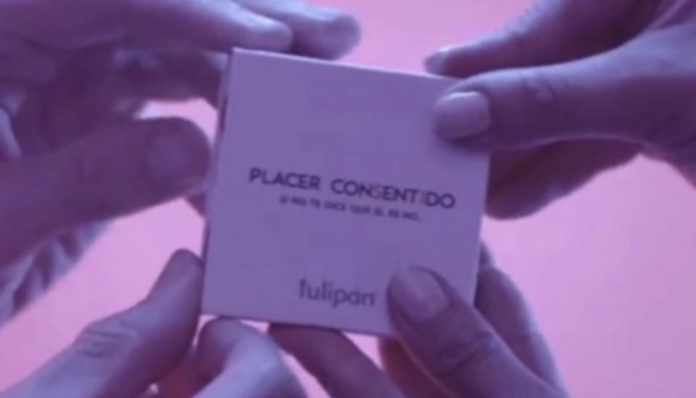
In a first attempt by the sex industry to encourage informed consent, Argentinian manufacturer Tulipan developed condom packaging that they claim requires 4 hands to open.
Like many US companies in the pleasure business, Tulipan sells a variety of condoms, lubricants, and sex toys.
Tulipan isn’t the first company to push for safety and consent. Some companies, like Drink Safe, help prevent date rape. Others, like the app Legal Fling, allow people to consent to sex with the push of a button. However, Tulipan is the first contraceptive company to push for informed consent and mutual agreement in the bedroom.
Obviously, there are ways that the packaging could open without four hands, but sometimes the message is worth more than the actual product.
1 out of every 6 women experiences rape in their lifetime. Women between the ages of 18 and 34 are most at risk. One-third of raped women experience prolonged post-traumatic stress disorder and contemplate suicide. Also, women who experience sexual assault or rape are 10 times more likely to use drugs as an escape.
We do need more companies to start making consent look sexy like Tulipan is doing now. The first step towards ending the rape culture of our generation is by changing the way sex is advertised. It’s important that we change the way sexual intercourse is presented in the media.
However, the concept is receiving a lot of negative press for a multitude of reasons.
First and foremost, many fear that this packaging will actually encourage more sexual assaults while silencing more victims. People may think, “The package opened, so I must have said yes?”
Furthermore, disability advocates say that this packaging is ableist and assumes that anyone who chooses to have sex has full use of both hands. The packaging requires dexterity and complex motions that may not be possible for all.
At the end of the day, the only way to really encourage consent is to teach young adults how to talk about their bodies and what they are comfortable with in relationships. Open and consistent communication is the key to healthy relationships where each partner respects the other. Teens and young adults need the information and visibility of appropriate behaviors modeled both in everyday life as well as in the media.
So, what’s your take? Are these “consent condoms” a step in the right direction towards safe, consensual sex? What do you think will help encourage consent and decrease sexual assaults?


















